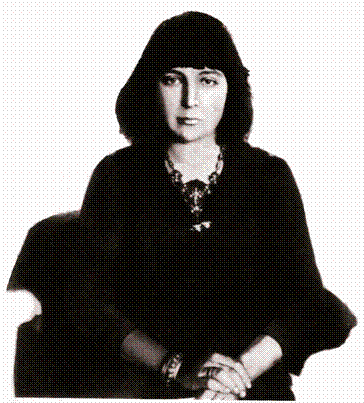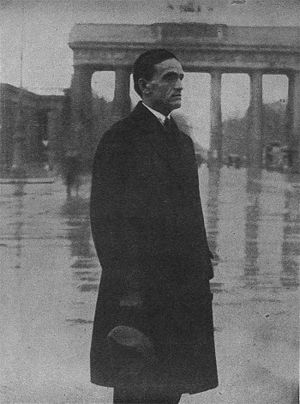
 Many years ago in a class on Russian literature, I caught myself puzzling over an aside by one of my professors (professors, after all, are famous for their asides). She claimed that the word poetess was a burden simply because of that triliteral suffix that let us know that George Sand and George Eliot were nothing more than socially acceptable pseudonyms. Female authors are of course far less of an oddity than they were in the days of this Gothic writer; but how men and women are supposed to differ in writing is similar to how they allegedly differ in other forms of existence. There are numerous bestselling works on this subject and they are all wrong. Not that, mind you, women and men shouldn't celebrate their differences, but that they should be chary of obscuring their commonalities. It is, in all likelihood, much harder to be a woman; they are judged on their appearance much more readily and viciously; they are expected to be weak and vulnerable, because otherwise they might not be deemed womanly; they learn history by learning mostly about the accomplishments and struggles of men; and because of these circumstances they receive different treatment. When they are emotional, we are not surprised; but when a man is emotional, he steps down the long road to becoming a great poet. When a woman cries, we shrug our shoulders; when a man cries, he has searched the bottom of his soul for words commensurate with his feelings and surfaced gasping for air. When a woman loves, it is because she must love in order to be a woman; when a man loves, it is because he has found a woman he can do nothing to but love. And when a woman finds her faith, it is seen as a fallback position to not making it in the world, whereas for a man it is the beginning of the greatest journey he will ever take. Which brings us to this collection of poems about both love and faith by one of the finest – male or female – English-language poets.
Many years ago in a class on Russian literature, I caught myself puzzling over an aside by one of my professors (professors, after all, are famous for their asides). She claimed that the word poetess was a burden simply because of that triliteral suffix that let us know that George Sand and George Eliot were nothing more than socially acceptable pseudonyms. Female authors are of course far less of an oddity than they were in the days of this Gothic writer; but how men and women are supposed to differ in writing is similar to how they allegedly differ in other forms of existence. There are numerous bestselling works on this subject and they are all wrong. Not that, mind you, women and men shouldn't celebrate their differences, but that they should be chary of obscuring their commonalities. It is, in all likelihood, much harder to be a woman; they are judged on their appearance much more readily and viciously; they are expected to be weak and vulnerable, because otherwise they might not be deemed womanly; they learn history by learning mostly about the accomplishments and struggles of men; and because of these circumstances they receive different treatment. When they are emotional, we are not surprised; but when a man is emotional, he steps down the long road to becoming a great poet. When a woman cries, we shrug our shoulders; when a man cries, he has searched the bottom of his soul for words commensurate with his feelings and surfaced gasping for air. When a woman loves, it is because she must love in order to be a woman; when a man loves, it is because he has found a woman he can do nothing to but love. And when a woman finds her faith, it is seen as a fallback position to not making it in the world, whereas for a man it is the beginning of the greatest journey he will ever take. Which brings us to this collection of poems about both love and faith by one of the finest – male or female – English-language poets.
Of the forty-four sonnets, you will surely know something of the forty-third. Despite its fame, it is inferior to at least half of its companions, and not only for its simple cadence and almost saccharine pleas to love. Barrett Browning has a special talent for talking in circles, no less evident in the seventeenth poem:
I never gave a lock of hair away
To a man, Dearest, except this to thee,
Which now upon my fingers thoughtfully
I ring out to the full brown length and say
"Take it." My day of youth went yesterday;
My hair no longer bounds to my foot's glee
Nor plant I it from rose- or myrtle-tree,
As girls do, any more. –
(XVII)
If you like this style of poetry, you will be very happy with Sonnets from the Portuguese, and, I may add, with Barrett Browning's work as a whole. It is precisely these types of meanderings through girlhood and womanhood, through things that men can only listen to but not experience, that beget the moniker of "female writing," or less graciously, "writing like a woman." And whatever you may think of them, they have established themselves as veritable methods of investigation in the academic community. There are many criteria for determining male and female writers, and the criteria, like so many of our loose cultural conventions, have wriggled through a number of distinct phases in the last century and ours (for example, according to one scholar's measuring sticks, the most female of authors is actually this famous Irishman). Indeed, Barrett Browning is aware of her femininity (a word of which I am hardly fond) insofar as she speaks to her husband, the great poet Robert Browning ("the liberal and princely giver, who hast brought the gold and the purple of thine heart" [VIII]), as his wife. Half of her sonnets are about being his possession, in every sense of the word, and her understanding that this fatidic relationship has been approved by God. In the thirty-third poem, she wishes unreluctantly for her husband to return her to her childhood (a wish contradicted by a superb, later poem):
Yes, call me by my pet name! let me hear
The name I used to run at, when a child,
From innocent play, and leave the cowslips piled,
To glance up in some face that proved me dear
With the look of its eyes. I miss the clear
Fond voices which, being drawn and reconciled
Into the music of Heaven's undefiled.
Call me no longer. –
(XXXIII)
I can find no fault in these lines; there is no error or misstep; but in comparison to other poems, the expression appears shallow, wasted on frivolous tidbits. We all miss the "clear, fond voices" of our past, yet nostalgia for these lost people and places – and the younger years of the people we know are all lost – remains one of our most fundamental means for coping with life's downturn, with the misery that besets those who have nothing but brief time ahead. Barrett Browning is young, but her youth, her maidenhood, is over. She is now a woman and a wife, and will be so perhaps even "better after death."
Unless your English teacher is of a particular bent, you will not hear much past the endless love of the Brownings and their unique place in the English literary canon. Yet Barrett Browning is at her best when her husband, beloved as he may be (the word appears at least a dozen times) becomes an element rather than the target of her verse. Take, for example, the exquisite thirty-sixth:
When we first met and loved, I did not build
Upon the event with marble. Could it mean
To last, a love set pendulous between
Sorrow and sorrow? Nay, I rather thrilled
Distrusting every light that seemed to gild
The onward path, and feared to overlean
A finger even. And, though I have grown serene
And strong since then, I think that God has willed
A still renewable fear ... O love, O troth ...
Lest these enclasped hands should never hold,
This mutual kiss drop down between us both
As an unowned thing, once the lips being cold,
And Love be false! if he, to keep one oath,
Must lose one joy, by his life's star foretold.
(XXXVI)
Were I more prone to hyperbole, I would deem this poem perfect; as it were, it is unblemished. The sonorous stack of "feared," "overlean," "finger" and "even" cannot possibly be duplicated, and the sense is so precise that no other image quite renders the idea appropriately. More important for our purposes, however, is the separation of poet and deity: the pairing might indeed have been the work of a higher power, but the poet himself is as human as his wife, who also happens to be a poet. She cannot "build upon the event with marble" (a stark contrast to this poet's glorious advice "forget thyself to marble") because we are dealing both with mortals and mortals are plagued constantly by one thing, uncertainty. At times, they know nothing greater than themselves; at others, nothing lowlier. For that reason, perhaps, we get the following lines:
I lived with visions of my company,
Instead of men and women, years ago,
And found them gentle mates, nor thought to know
A sweeter music than they played to me
(XXVI)
Few finer stanzas will you find in Barrett Browning's work. What she captures is the essence of every poet's dilemma: to live among the rest, or imagine a world in which to live. Every poet has preconceived notions of happiness, love, sorrow, anger; every poet wants to know every last emotion and justify it with the very event, good or bad, that might summon it from within him. What he cannot imagine is that he will not experience everything, love everyone he is destined to love, or write everything that he is destined to write. Yet he loves the future. He loves the future because of the anticipation of being an even more accomplished poet. Not in the sense of commercial success, which is all too often the barometer of mediocrity, but of writing with greater precision and scope. Is that why Barrett Browning quotes herself in XLII ("my future will not copy fair my past")? Should we care that she was hesitant to publish these works, with the pet name her husband bestowed upon owing to her appearance? But Barrett Browning does care, if a bit too much at times, although read as a whole, her poetry is consistently optimistic, faithful, loving, and grateful to life for everything it has given her. That embrace of life's wonder was rare then and is even rarer now.
 Sunday, September 28, 2008 at 15:48
Sunday, September 28, 2008 at 15:48  O golden beams that wave and prance
O golden beams that wave and prance 





